As a naturopath and medical astrologer, I often get asked: How does medical astrology fit into modern health care?
To answer that, it helps to look back at the history of this practice and then explore how we use it responsibly today.
A Brief History of Medical Astrology
For thousands of years, astrology and medicine were closely linked. In the West, before modern biomedicine took over, astrologers and physicians often worked side by side. Charts were drawn up to time treatments, understand constitutional weaknesses, and even choose the best moment for surgery.
One of the most common techniques was the decumbiture chart — cast for the exact moment someone fell ill or “took to their bed.” These charts gave clues about the nature of the illness, its likely course, and where the patient might need support.
Many medical words we still use today carry this astrological heritage. The term “influenza” comes from the Italian phrase for “influence of the stars,” describing an illness thought to be brought on by planetary influence. Even the common prescription symbol, ℞, is derived from the astrological glyph for Jupiter — once seen as invoking the planet’s benefic, healing qualities.
Why Medical Astrology Changed
Around three to four centuries ago, medicine began to distance itself from astrology. As anatomy, pharmacology, and surgery developed, astrology was dismissed as unscientific. Yet the symbolic links between planets, signs, and body systems never disappeared. Practitioners like Culpeper kept those traditions alive, and many of us still find them incredibly relevant for understanding the energetics of health.
Today, we practise medical astrology differently. We have access to antibiotics, pain relief, surgery, and a wealth of modern science. Astrology doesn’t replace medicine — instead, it provides a complementary framework for understanding constitution, patterns, and cycles.
Modern Ethics in Medical Astrology
Because I’m both a naturopath and an astrologer, I take ethics very seriously. There are important lines we don’t cross:
-
No diagnosis. Only licensed doctors can diagnose. As astrologers, we look at patterns and tendencies, not medical labels.
-
No fear-based predictions. Saying things like “this transit could mean cancer” is harmful and irresponsible. Words can plant fear and cause real distress.
-
No false certainty. Astrology isn’t about deterministic fate. It’s about potential and possibility.
Instead, we use the natal chart to highlight constitutional strengths and vulnerabilities. We ask questions: How do you cope with stress? Where does your system tend to get stuck? What routines help you stay resilient?
I often remind my students: if you don’t know what to say, don’t say it. Our language matters. The goal is to empower, not frighten.
Astrology and Modern Medicine: Working Together
In modern practice, I see medical astrology as a complementary tool. It doesn’t replace tests, treatment, or medical care — it adds another layer of insight.
-
Astrology shows us the energetics behind health issues: hot/cold, tense/relaxed, fixed/mutable.
-
It provides a blueprint of constitution from birth.
-
It helps identify patterns over time — for example, why someone gets sick at the same time every year, or why certain stressors hit harder.
-
It gives clients agency: instead of waiting for illness, they can support their system proactively.
When combined with modern medicine, astrology becomes a powerful ally for holistic care.
Learning to Practise Responsibly
Medical astrology has a rich history, from decumbiture charts to the lingering traces in today’s medical language. But in modern times, our role has shifted. Rather than predicting or diagnosing, we now use astrology to illuminate patterns, guide preventative care, and support people in working with their unique constitution.
Done ethically, it doesn’t compete with modern medicine, it complements it. And in that partnership, we honour both science and symbolism in the pursuit of better health.
If you’d like to understand how to bring these ethics and insights into your own practice, I cover them in detail in my lecture: Health Assessment Through the Natal Chart. In this lecture, I share the exact framework I use to assess health through the natal chart — always with caution, context, and respect for modern medical boundaries.
🔗 Explore the lecture here and learn how to practise medical astrology responsibly.
